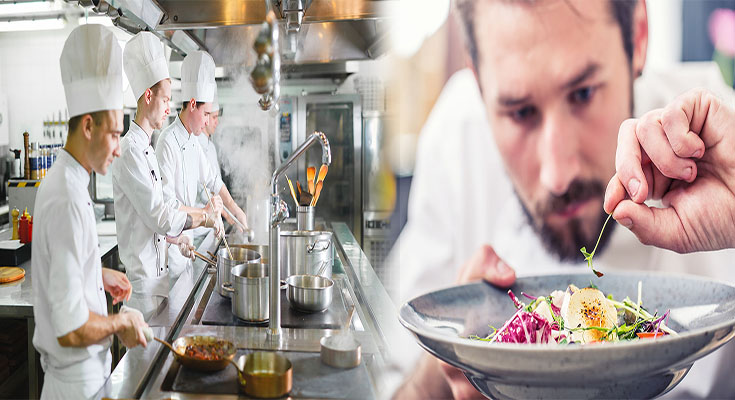The importance of culinary skills is increasing as CS and food skills are being used as preventive measures for diet-related diseases. Culinary skills are being taught in school, in professional kitchens, and in mobile kitchens to help students in various grades gain insight on a wide range of subjects including math, English, language arts, science, and social studies.
CS and food skills are increasingly used as a preventive measure to address diet-related diseases
Malnutrition is not something to be taken lightly. It has some pretty hefty economic and social costs. In the US, malnutrition and its related diseases contributes to about a third of adult deaths. Among lower income populations, the risk of disease is especially high. Increasing consumption of nutritious foods may help mitigate this risk.
Increasing the quantity and quality of a diet’s key nutrients can also have a positive impact on the environment. Adding soil additives to groundnuts, for example, may improve soil microbiological levels, thereby reducing the incidence of foodborne pathogens. Other measures such as better market infrastructure could play a part, as well.
The most important component of any food safety strategy is ensuring the proper quality and nutrition of food. This is achieved through a combination of processing, packaging, and consumer education. If consumers are informed of the most appropriate ways to choose and consume safe food, they may be swayed to make the right choices. Moreover, better quality food can translate into higher economic productivity.
Mobile kitchens integrate teaching math, English, language arts, science, and social studies
Mobile kitchens can be a big hit for both students and teachers alike. Aside from the usual suspects, a healthy influx of disadvantaged and underserved children can be a boon to the entire school community. It’s also a great way to promote a wholesome school culture that doesn’t shy away from the nitty gritty. In addition to the food, a well-thought-out plan can include a host of other goodies. From computers to free lunch, a well-designed program can help improve student performance in a variety of ways. For example, one might assume that a student’s attendance is a major concern, but a well-designed program might help to alleviate this by fostering a frank and friendly relationship between student and teacher. Also, a well-designed program can encourage teachers to be better stewards of their pupils. Lastly, a well- designed program can foster an environment in which all parties are more willing to work together to improve the quality of education for all.
FSU Cooks: Culinary Nutrition Workshops Help Participants Learn About Food, Cook, and Eat
FSU Cooks is a culinary nutrition education program that provides hands-on food preparation workshops for students and cooks of all levels. These workshops include introductory campus lectures, community lectures, cooking demonstrations, and more. The program is offered through the Food and Nutrition Department at Framingham State University.
This project is a pilot study. It was conducted during the fall semester of 2018 and evaluated the impact of three workshops on participants’ eating habits. Using a randomized control design, the researchers compared the diet of a group of participants with that of a control group. They found that the participants were less likely to consume fatty foods and more likely to eat fruits and vegetables than the control group.
Participants in the FSU Cooks program completed questionnaires after each workshop. These questionnaires included questions about the participant’s experience with cooking, their self-reported level of cooking competency, and their attitudes toward nutrition counseling.
During the second workshop, eight residents attended. Five of these participants also attended the first workshop. Their questionnaires contained open-ended feedback about the program.
Cover letter for applying for a position in the culinary industry
When you are applying for a position in the culinary industry, you will have to write a cover letter to highlight your skills and experience. This document is one of the most important parts of the job search. It is your chance to sell your potential employer and convince them that you are the right candidate for the job.
You can improve your chances of getting a job by creating a cover letter that is unique and attractive. However, it is also crucial to write it well. Use a free cover letter template to help you craft a good letter.
Before you begin writing your cover letter, you should be sure to research the company you’re applying to. Researching the company’s goals and vision will help you find out what they’re looking for in a chef. Then, tailor your letter to fit the needs of the company.
Include the name of the hiring manager. Hiring managers want to see that you are organized. They also want to know that you are interested in the position. That way, they’ll be more likely to move you through the interview process.

